In Memory of Dr. Stephen, Choi-Lai Chan
Dr. Stephen, Choi-Lai Chan (1940-2021)
Dr. Stephen, Choi-Lai CHAN (陳載澧), our former colleague passed away in the company of his wife Josephine C.F. WOO in Hong Kong on 10th October 2021 at the age of 81.
Dr. Chan received his B.Sc. (General) degree from The University of Hong Kong in 1963. He continued with a one year B.Sc. Special course in mathematics and obtained the B.Sc. Special degree with first class honours in 1964. As a student, Dr. Chan had impressed his teachers by his confidence in his ability and the straight-forward and intelligent way in which he raised and answered various questions. Dr. Chan then went to the University of British Columbia to study theoretical physics under the direction of Prof. Malcolm McMillan and worked on some problems in the theory of elementary particles. In a letter dated 2nd February 1968 to Prof. Yung-Chow WONG, the Head of Department at that time, Dr. Chan mentioned that he was doing very fine in UBC and was awarded the Antoio Stanghellini Scholarship to support him to attend the 5th International School of Physics ''Ettore Majorana'' in Erice, Italy for two weeks in July, 1967. There were 128 physicists from thirty-four countries in the summer school and Dr. Chan was one of the only three participants who won the Scholarship. In the same letter, Dr. Chan also mentioned that he had applied a lecturer position in our department. On 26th March 1968, HKU offered Dr. Chan a Lectureship in Applied Mathematics subject to his obtaining the Ph.D. degree at UBC. In a letter dated 28th March 1968 from Prof. Wong to Dr. Chan, we know that even though there were other candidates who have obtained their Ph.D. degrees and had more research and teaching experience, the Department thought Dr. Chan had better potentiality and had confidence in his ability. Dr. Chan accepted the offer on 9th April 1968. He then completed his thesis Octet Enhancement in Hadronic Interactions and passed the oral examination on 3rd September 1968. Results in his thesis were later published in American Journal of Physics, Journal of Mathematical Physics and Physical Review D. On 7th September 1968, Dr. Chan married his wife Josephine C.F. Woo in Vancouver and they flied back to Hong Kong about two weeks later. On 27th September 1968, Dr. Chan joined the Department of Mathematics, HKU as a Lecturer in Applied Mathematics. Since then Dr. Chan has been working in our department for 34 years until he retired from this teaching job on 30th June 2002.
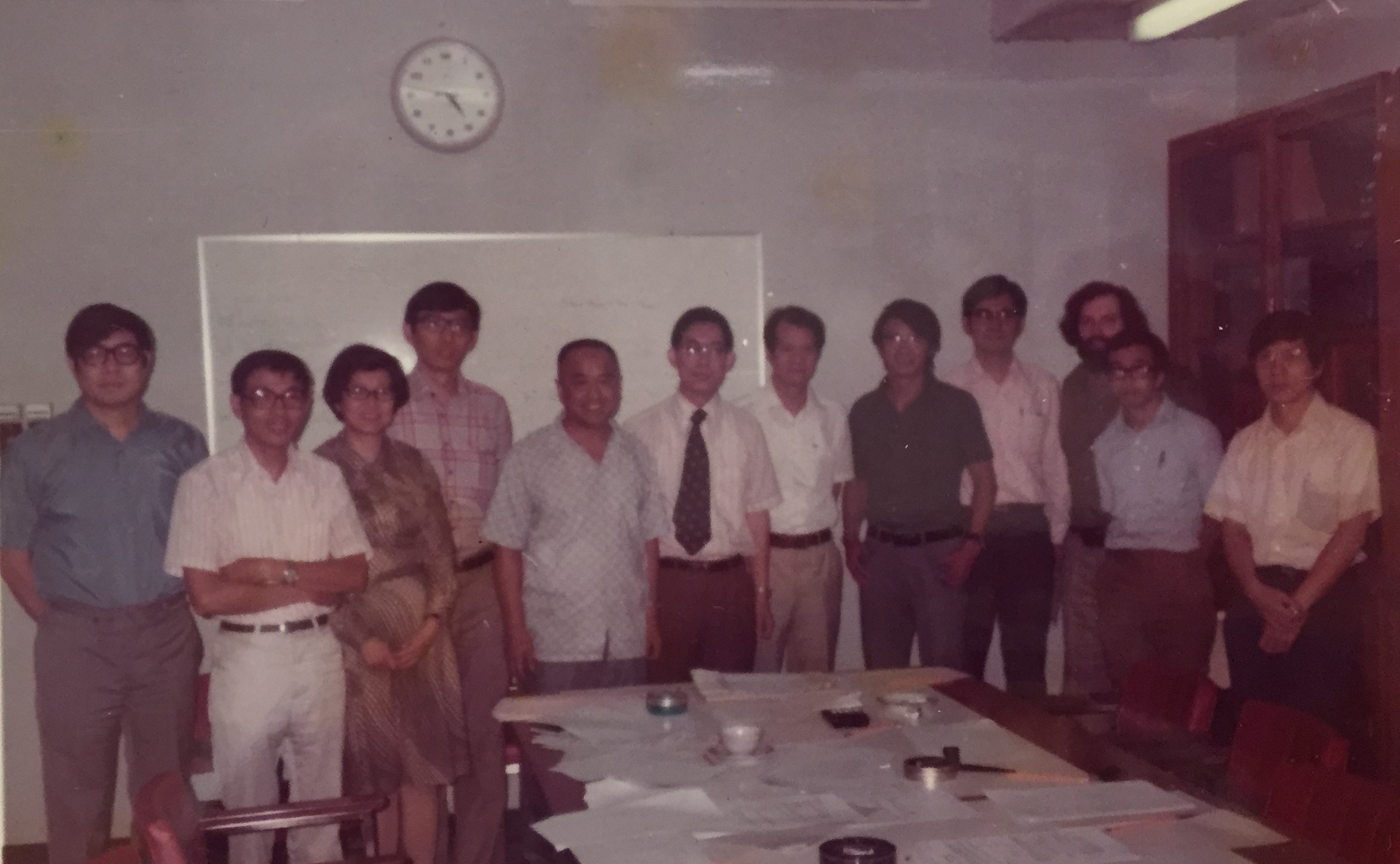
The first course Dr. Chan taught at HKU was Statistical Mechanics (a new Applied Mathematics paper for B.Sc. Special students). Later, he also taught the Special Theory of Relativity, Classical Mechanics, Group Theoretical Methods in the Physical Sciences and First year Mathematical Analysis. He also offered mathematics courses like Operational Research II (in collaboration with Dr. K.T. LEUNG) and Probability Theory for which he has been teaching on and off for more than twenty years. Dr. Chan was enthusiastic about his work and his lectures were always clear and lively. Moreover, students also found him very approachable and he often invited students for coffee together after the class. Moreover, Dr. Chan also served as the Warden of Old Halls (1972-1973) and the non-residential Hornell Hall (1974-1999).

Besides publishing research papers in theoretical physics, Dr. Chan also published 3 secondary school textbooks on Modern Mathematics (coauthored with Dr. K.T. Leung and Dr. Doris Chen) and 2 teacher's manuals (by Longman and the Hong Kong University Press) in 1970s. He also served as the Advanced Level Applied Mathematics Chief Examiner in 1971.
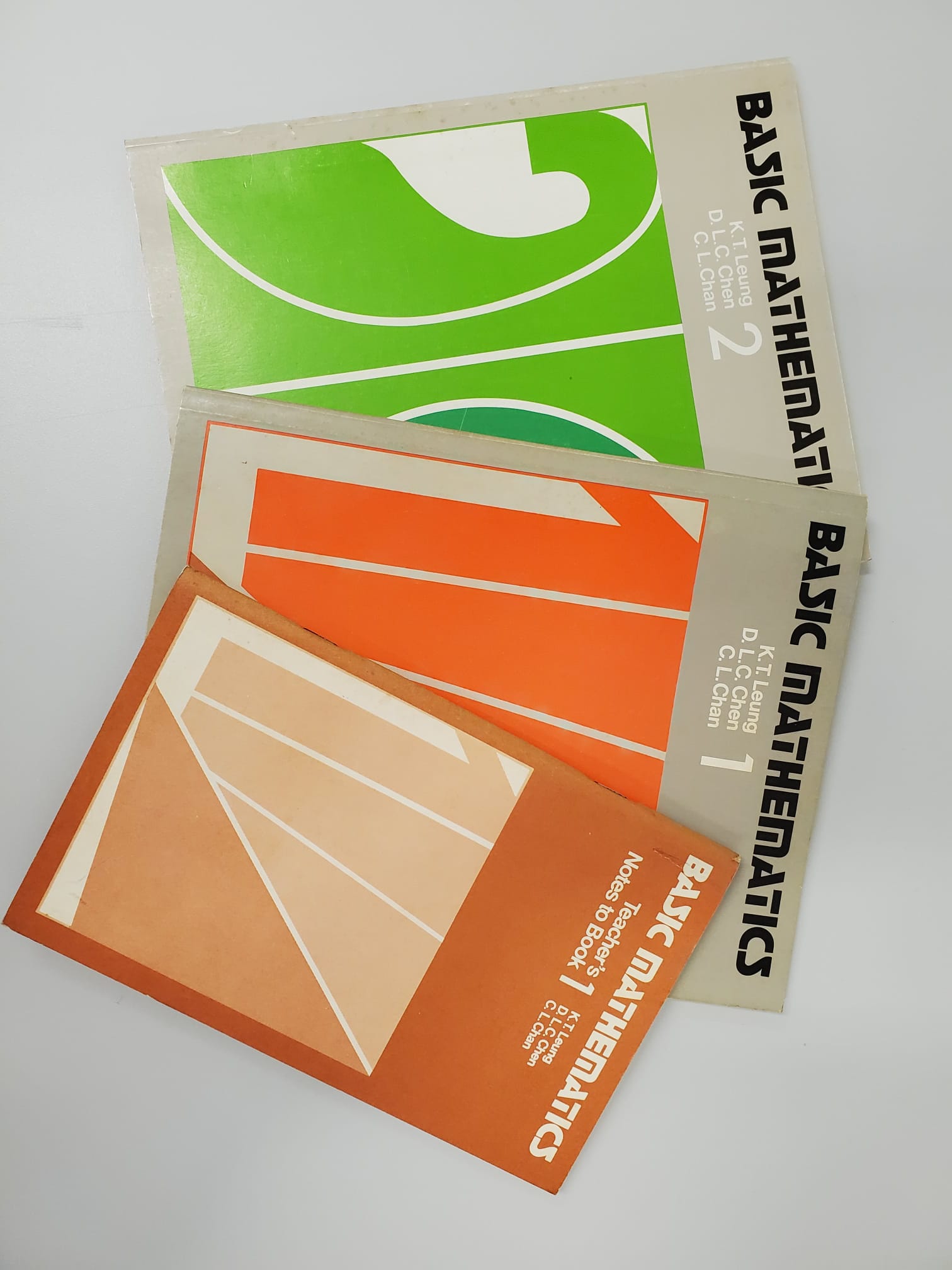
In 1970-80s, Hong Kong was geographically isolated from other institutions of higher learning. Therefore, it would be important for our staff to attend conferences and spend a few months at other centres of learning in order to keep up with the new developments in their respective fields of study. Dr. Chan participated quite a number of conferences in 1970-80s and one of them was the 1980 Guangzhou Conference on Theoretical Particle Physics organized under the auspices of the Chinese Academy of Sciences with Prof. San-Tsiang TSIEN being the Organising Committee Chairman. There were 100 physicists from China and 41 from overseas which included Prof. Tsung-Dao LEE, Prof. Chen Ning YANG and Prof. Anthony ZEE. Dr. Chan also met Prof. Hong-Mo CHAN (from CERN) who was a former graduate of our department and then a lecturer in Applied Mathematics in 1960-1962. The opportunity to hold extended discussion with scientists such as Lee and Yang was certainly hard to come by. Later, with an invitation from Prof. Chen Ning Yang, Dr. Chan became a member of the Institute for Theoretical Physics, State University of New York at Stony Brook for the period November 1980 to June 1981. There Dr. Chan met some top physicists and worked on a new solid state problem which eventually led to a joint paper with another visitor Prof. Yong-Shi WU published in Journal of Physics C: Solid State Physics.
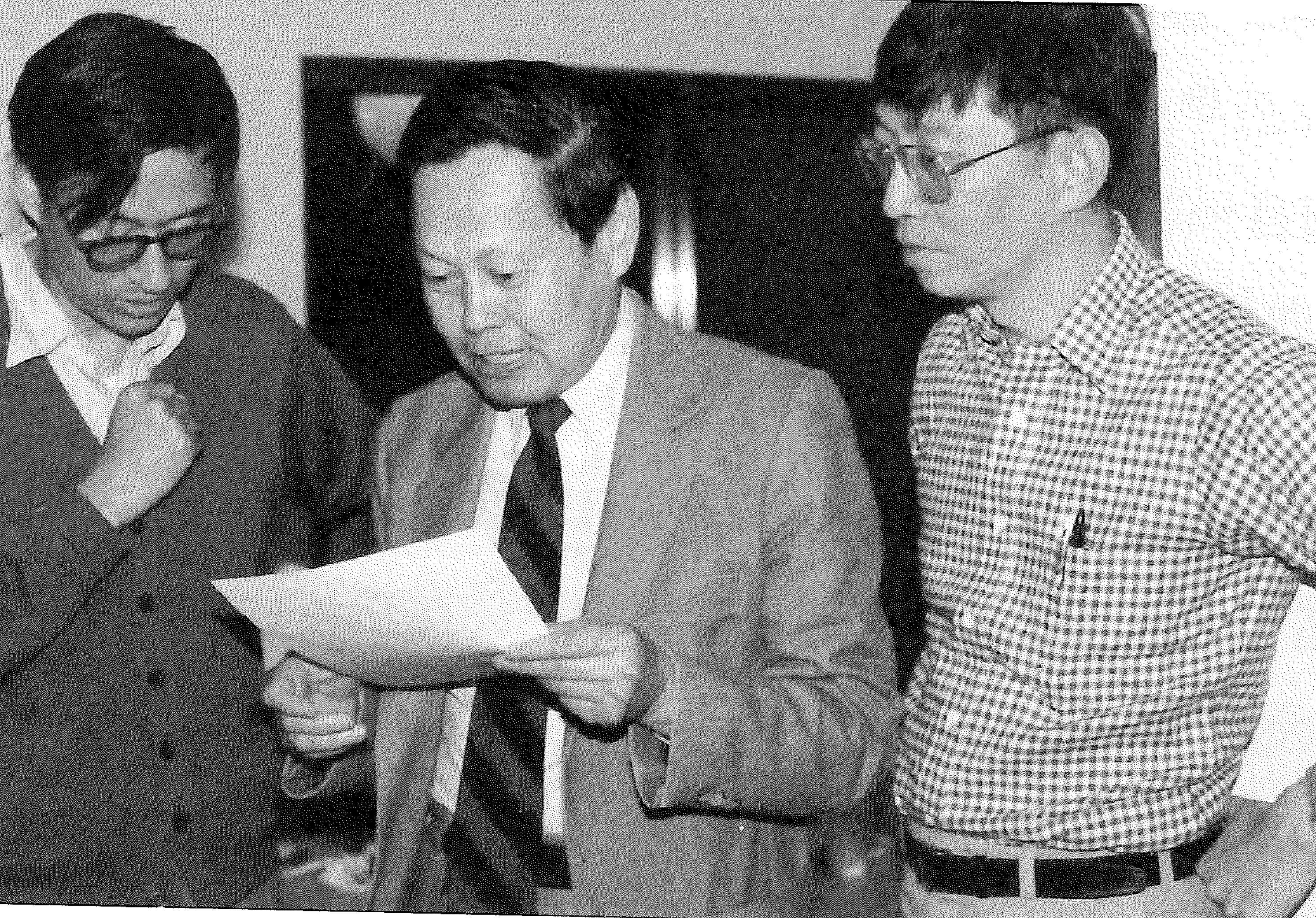
The visit to UCLA in December 1977-August 1978 was even more influential to Dr. Chan's career. There, he was a visiting scholar in Department of Systems Engineering and a visiting associate professor of the Theatre Arts Department but he found himself spent much more time in the latter department (he was teaching Drama and Directing there). Actually, since 1974, Dr. Chan has been involved with the theatre variously as director, playwright or translator of plays, initially in association with major non- professional groups and after the UCLA visit, also with leading professional companies such as the Hong Kong Repertory Theatre Company to which he was also artistic advisor from 1982 to 1998. His theatre works in the Mainland broke new grounds and are regarded intercultural actions of significance. More important professional directing assignments include Marat/Sade 《馬拉∕沙德》(jointly with K.F. Chung, Hong Kong Repertory Theatre HKRT, 1983), A Man for all Seasons 《日月精忠》(HKRT, 1985), Desire Under the Elms 《榆樹下的慾望》(HKRT, 1988), Black Comedy (HKRT, 1991); Equus 《馬》(The Shanghai People Arts Theatre, 1986), He'll be out of Mountains Tomorrow 《明天就要出山》(Shanghai PAT with Richard Schechner, 1989), Black Comedy (Guangdong Province Drama Theatre 1991), Oedipus Rex (UCLA Theatre Arts Department, 1978). Professional Commissioned translations included Marat/Sade, Amadeus 《莫扎特之死》 (山邊社, 1985), A Man for all Seasons and Equus (for Shanghai).
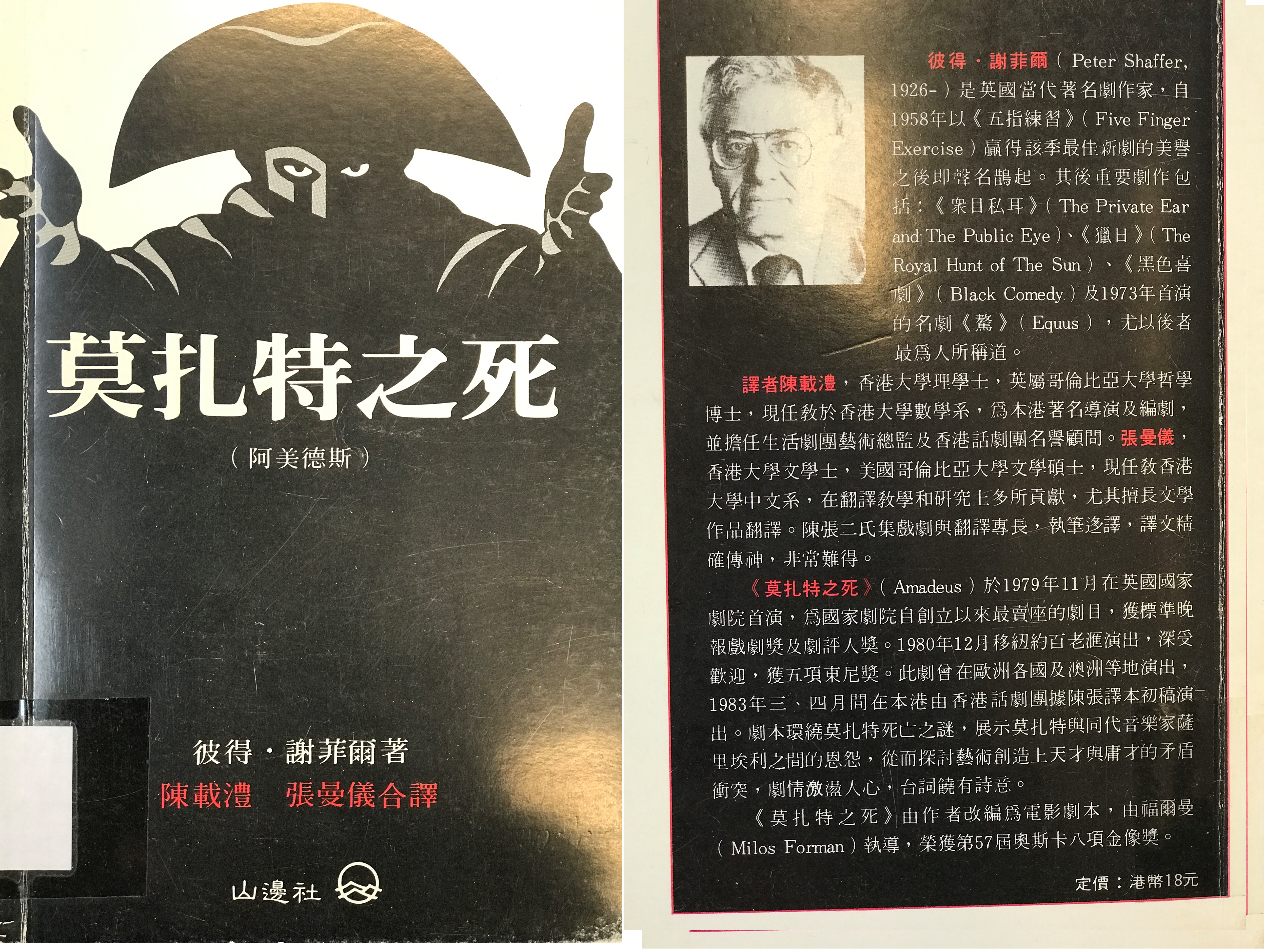
As co-founder and Vice-Chairman of the Hong Kong Institute for the Promotion of Chinese Culture, Dr. Chan was responsible for its performance arts and academic programmes in an executive capacity and was instrumental in many of its pioneering activities. Directorship of major conferences and festivals including the Huang-He Festival (1985), the Peace Rally Open Air Festival (HK Government), International Brecht Festival (1986), International Conference on Translation Today (1987), International Conference on Arts Administration (1988; April Beijing; May Shanghai, with the PRC Ministry of Culture), Theatre Season of Contemporary Chinese Literary Masterpieces (1985). With such impressive executive experiences, Dr. Chan was invited by the then Vice-Chancellor, Prof. Gungwu WANG to set up and chair a Committee on General Education in June 1995. Over the year, the General Education Programme proved to be popular among students and enrollment to its courses kept going even after the inception of the unit-learning broadening courses in 1998. The programme has also acquired a reputation among sister universities as valid and effective effort toward whole-person education. From 1995-2000, some 200 courses and workshops in diverse areas including economics, management, society, culture, media, the arts, science and mathematics, computer science, EQ and the art of thinking, history, philosophy, architecture have been mounted, with special emphasis on the interaction and interface between different disciplines. The accent has always been on education of the whole person rather than mere transmission of knowledge and techniques. From 1995-2000, Dr. Chan, though nominally only the chairman of the Committee on General Education, acted also as the de facto director who designed, planned and supervised the implementation of the above programmes. Given the success of the General Education programme in HKU, Dr. Chan was invited to establish the Art and Cultural Education Programme for the Hong Kong Baptist University in 2002. Later, he became the Director of the Centre for Holistic Teaching and Learning in HKBU.

His passion about drama, mathematics, physics and the teaching of creative writing led Dr. Chan to think a lot about learning and creative thinking. He wrote columns about these topics for local newspapers like the Hong Kong Economic Journal《信報》for many years and eventually he published the book 《破格思考 : 從古今大師如何突破說起》on creative thinking in 2014. Just before Dr. Chan retired from our department in 2002, he gave a talk on Mathematics, Science and Creative Thinking 《數理與創意思考》in our public lecture series 《數趣漫話》 on 9th March 2002. At the very beginning of his lecture, Dr. Chan showed the audience the very touching "water scene" in the movie The Miracle Worker (1962). The scene is about how Helen Keller first made the connection between water and the word WATER. Dr. Chan then explained to the audience how Helen Keller's discovery is related to our learning process (this can also be found in the Introduction of Chapter One of his book). The recording of this lecture can be found here.
Finally, I would like to end with Dr. Chan's own words about the mission of general education:
It is to be emphasized that the object is not to learn all the connections among the multifarious sub-modules in liberal studies - this is not necessary, and certainly not practical. The aim rather is to enable the learners, through taking part in active and deep learning, to build up a mental model of the connectedness of knowledge and recover the desire, confidence and ability to explore uncharted terrains. The main thing is to learn to connect.
Dr. Chan will remain in the memory of those who knew him. May he rest in peace.
Patrick, Tuen Wai NG
Professor
Department of Mathematics, HKU
16th October 2021
多姿多采的一生:對載澧兄之禮讚
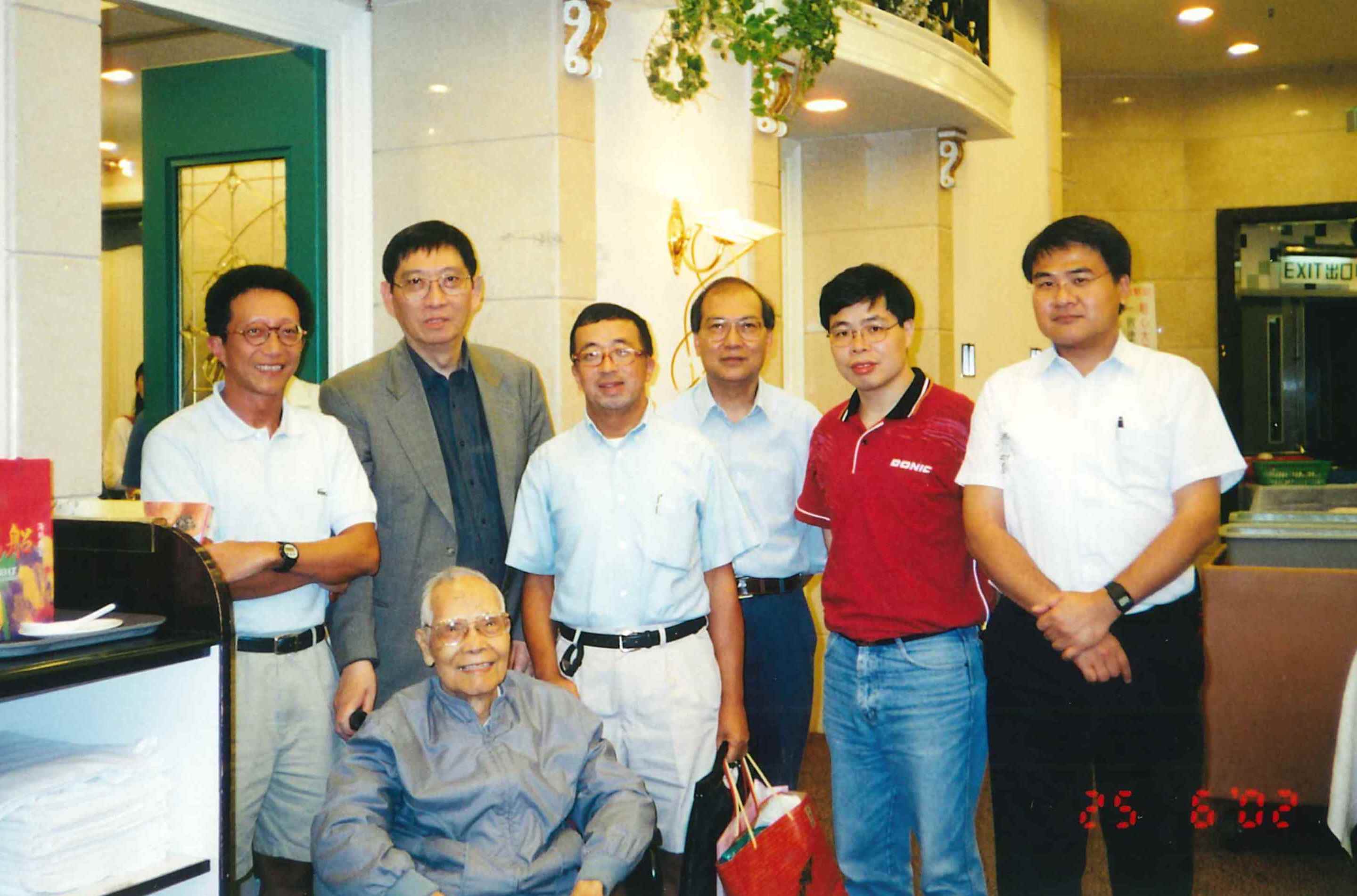
一九七五年八月我回到母校任教,與載澧兄在香港大學數學系共事,但其實十二年前我入讀港大理學院時,早聞其名。當時一群住宿於盧吉堂 (Lugard Hall) 的同學非常祟拜他們舍堂的 "大仙 (senior)" Stephen,視他為青年導師,言必Stephen。Stephen者,載澧兄的英文名字也,後來與他共事,系內大家都稱他為CL。
"Stephen把Apostol全部習題都做了一遍!"
Apostol是指Tom Apostol在一九五七年出版的經典教本《數學分析 (Mathematical Analysis) 》,我聽到了便企圖「偷師」,立即買了書本回來細讀。固然,我的功力差Stephen很遠,只能做習作中其中幾題吧,然而,似明非明地讀了全書,竟也在大學一年級數學分析課做的不差,實拜CL之賜。
一九七五年八月十三日回到香港大學履職,甫抵埗向數學系報到,即被當時的系主任黃用諏教授著我接手教CL的一門課「排隊論 (Queueing Theory)」。我的本行乃抽象代數,於「排隊論」一竅不通,甚至與之極有關連的概率論(Probability Theory) 亦沒有正式修讀過,故對此任命感到忐忑不安。全憑恩師黃教授的勸告及鼓勵,叫我多學一些自己不懂的知識以擴闊視野,並囑咐我找CL尋求幫忙。CL二話不說,便贈我Robert Cooper在一九七二年剛出版的新書《排隊論導引 (An Introduction to Queueing Theory)》。我馬上回去把書細讀,當時也幸好得到另一位老友林建的鼎力幫助,在開學前那個月「惡補」了一番概率論; 同時,我也在那一學年旁聽了CL授的概率課程,由此得以親炙教益,才敢於上陣!此番工夫,對我日後的科研工作大有裨益,我必須感激CL、黃教授與林建。
認識CL將近六十載,也算是老友了。雖然有時我對他的行事方式不一定全部認同,但總的而言,我們談的非常合拍,尤其於教學方面,我們的想法、做法,以及對師生關係的體會都頗相近,從談天當中我也自他那兒學到不少。因此,我大膽說一句,有一件事上的看法,我跟他是很接近的。我們都曾有過年青的夢想,有志成為一流的數學家或者理論物理學家(用今天的流行術語說,就是追求卓越,要當上世界級人馬)。後來大家也明白到夢想歸夢想,能力卻有不逮。我在研究生院時已經夢醒,CL可能比較遲一些吧。不過,我們並沒有因為夢醒了便不再努力,因為我們也明白到人生目標不僅在於獲取諾貝爾獎 (Nobel Prize) 或者菲爾茲獎 (Fields Medal)。雖然我們知道不會拿到這類獎項,也不要妄自菲薄,也應該追求自己的興趣和志向,做自己覺得有意義的事。譬如說,我和CL都有信心在教學方面作出貢獻。CL比我強,除了傳授數學知識以外,他很關心學生的全人發展,在這方面的工作和成績,大家有目共睹。CL多才多藝,新的念頭層出不窮。至於CL 在戲劇和創意寫作方面的才華與成就,那個圈子的朋友當然比我瞭解得更加透徹,輪不到我再說些什麽了。
一九九五年CL在港大開創了通識教育計劃,組織和舉辦了一系列並不給予學分的課程,卻吸引了眾多學子。每學期之初,報讀者眾,報名處排了長長的一條龍,蔚為奇觀。這項通識教育計劃,由CL 主持至他二零零二年六月退休後還繼續下去。
CL說服了我在一九九六年開設其中一門數學通識課「數學文化 (Mathematics as a Cultural Phenomenon)」,一共五講,正規課堂下課後五時至六時半舉行,竟也來了一群聽眾,導致三年後我在數學系把五講擴展為一門選修課「數學:文化的傳承 (Mathematics: A Cultural Heritage)」,每年修訂增刪內容,倒也教了十年,退休後仍教了幾年,從中得來的樂趣與滿足感,實在要感激CL。
CL在港大數學系服務了三十四載,榮休前夕為本系的「數趣漫話」講座系列作了精彩的一講:「數理與創意思考」。從演講中我們知道CL的多才多藝,不遲於七、八歲已經有所表現!CL榮休後,把他的無限創意,帶到香港浸會大學發揮,創立了人文素質教育計劃,繼續造福莘莘學子。
從載澧兄多姿多采的一生,本著其一貫之熱誠畢生致力的工作,我們明白到應該像他如此,愛護年青的一代,弘揚具有普世價值的文明和文化。也要活躍思想,不要盲從權威,一言以蔽之,借用載澧兄七年前送贈予我其大作的書名:「破格思考」!
載澧兄,許多你的朋友和學生都會十分懷念你,感激你!
蕭文強
二零二一年十月十七日
A tribute to my teacher
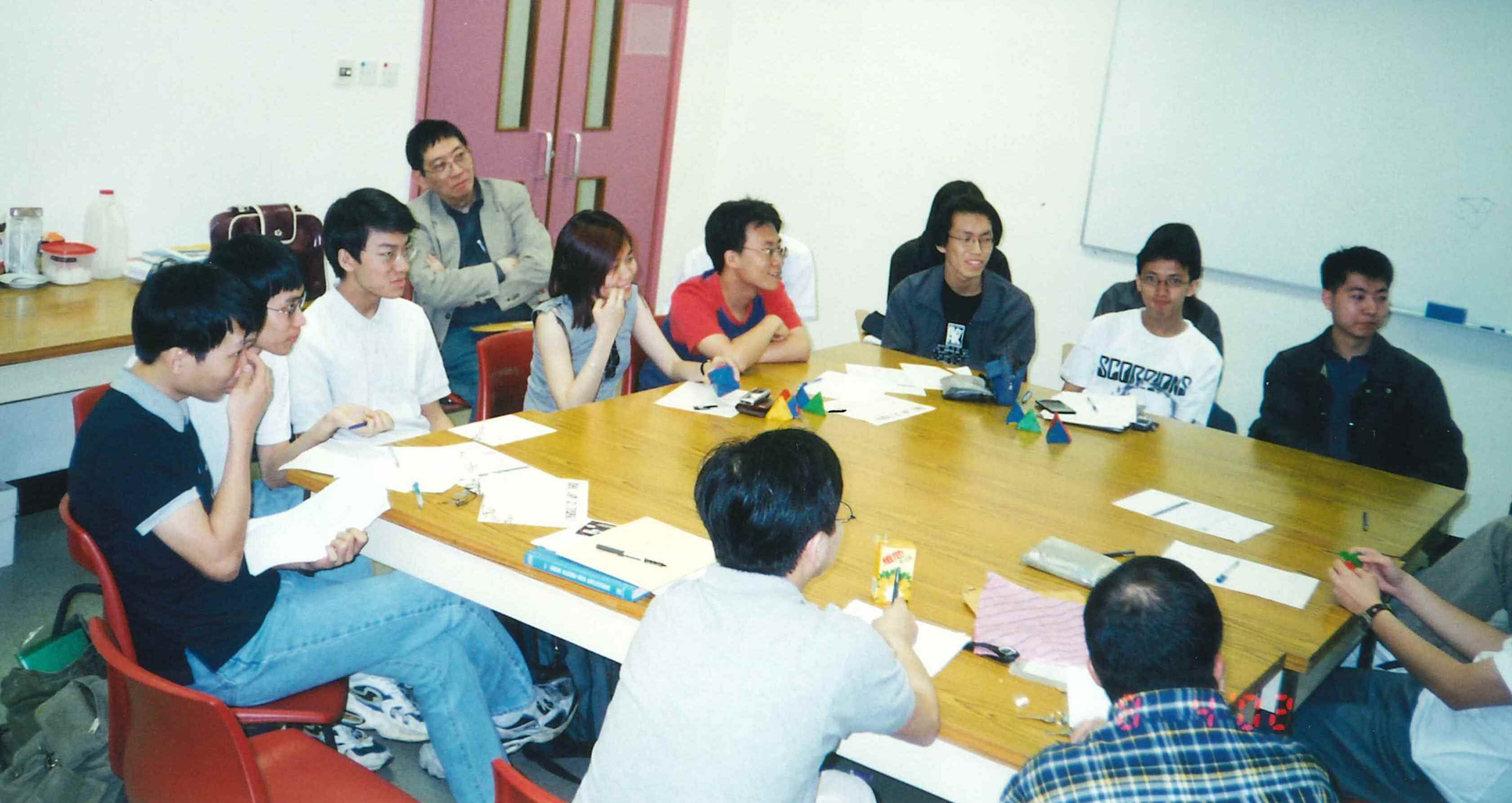
As an undergraduate student in HKU, I have heard of Dr Chan's name almost as early as I entered university, as I regularly received mails from the General Education Unit (yes, at that time the information was mailed to students' homes), in which details on the general education courses were covered by a letter signed by Dr Chan, the then Director of General Education. I still remember that I learnt the phrase "exams are necessary evils" there, and that Dr Chan kept emphasising that the general education courses were meant to let students broaden their horizons in the absence of exam pressures.
At that time I did not know that Dr Chan was a member of the Department of Mathematics. Materials from the General Education Unit were in Chinese, and so was Dr Chan's name on the letter. On the other hand teachers' names on the website of the Department Mathematics were in English (with given names in initials, i.e. C.L. Chan in this case), so I had not been able to match the two names until much later.
I did not really get to know Dr Chan personally until the last semester before his retirement, when I took the course Probability Theory which he was to teach for the last time. He told us in the first class that "I have been teaching this course on and off for more than twenty years". Like many other teachers in those days, he had everything in his mind so he could keep writing on the board and explaining to students without any reference materials in hand.
One day I and some other classmates talked to Dr Chan after class. At the end of the conversation Dr Chan said "let's go for coffee together next time", and we agreed. Then at the end of the next class as Dr Chan was about to leave the classroom we nervously discussed whether we should take the initiative to honour the agreement!
The final exam of the Probability Theory course in that semester (probably the last "necessary evil" created by Dr Chan) also left me with deep impression. In a class towards the end of the semester, Dr Chan said he was repeatedly urged by the Department to submit the exam paper which had been overdue for a long time. Then on the day of the exam we were handed two surprises with the exam paper. The first surprise was that the 4 pages of exam paper were printed on one sheet of A3-sized paper with the characteristic marks of photocopying machines. Probably the papers were printed by the Department as it was too late for the then Exam Unit (today's Exam Office) to print, where in the latter case the exam papers would always be printed on A4-sized paper (and without marks of photocopying machines) even if the number of pages is 3 or 4. I've still been keeping that A3-sized hard copy in my office.
The second surprise is with the content of the exam paper. In those days the "HKU Exambase" had been set up by the library, so we were able to see the past exam papers. In preparing for an exam we would typically work on some recent past exam papers for practice. The past exams of the course Probability Theory looked relatively standard, with similar questions appearing in the previous exam papers. But not for the very last one by Dr Chan. I still remember that when the exam started, Dr Chan kind of announced (in Cantonese): "...this exam paper may look unfamiliar (in Cantonese: 生口生面) to you, but bear in mind that it is not hard..." I pretty much enjoyed working on those "unfamiliar questions". Before the very last part (Question 3(b)(ii)) of the question paper there was a remark, which was rarely seen in exams I have taken in HKU: "The following computations are considerably more complicated than those in (i). Try it if you have time. Proceed systematically and go as far as you can." I did try to go as far as I could, but I did not have sufficient time to complete everything.
I knew that Dr Chan started a new endeavour in HKBU after his retirement from HKU. Later when I taught at HKBU I had some interactions with colleagues from the Centre for Holistic Teaching and Learning (CHTL) there, although by that time Dr Chan had already retired from the post of CHTL Director. After returning to my alma mater I had the chance to meet Dr Chan again in a departmental outing, albeit for the last time.
While Dr Chan has left us, what we have learned from him, both within and beyond the subject of mathematics, will remain in our heart. May Dr Chan rest in peace.
LAW Ka Ho
18th October 2021
